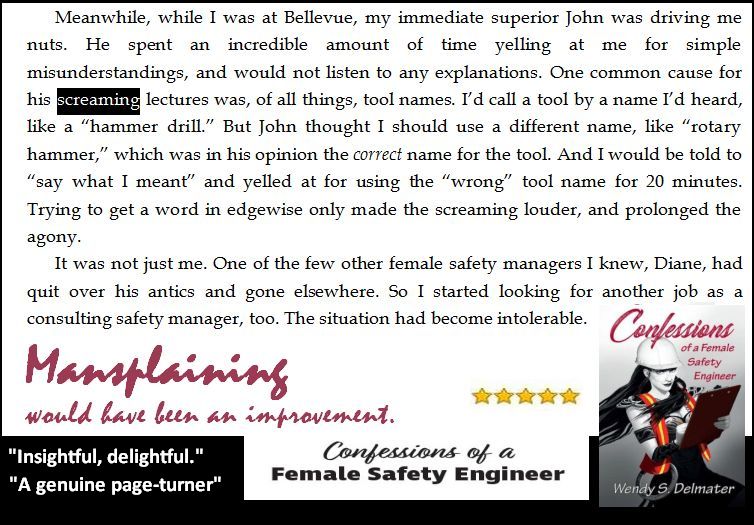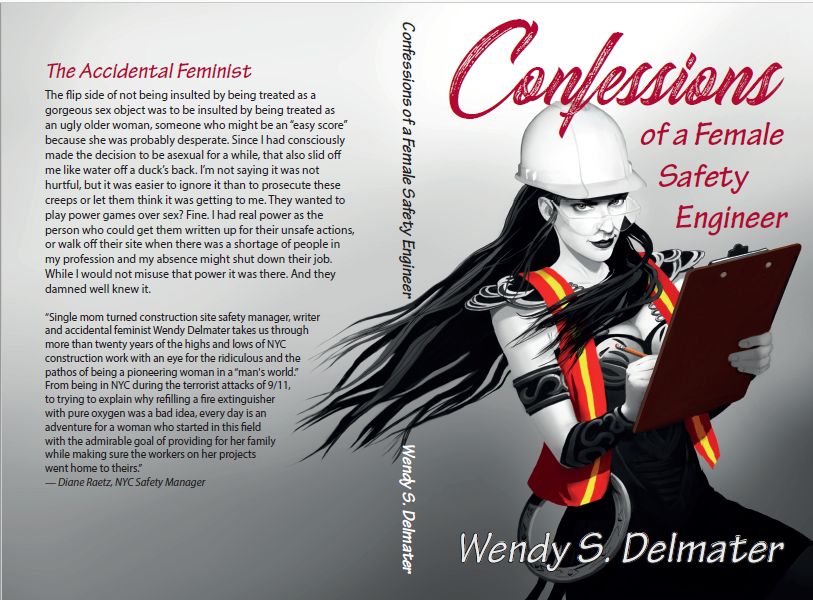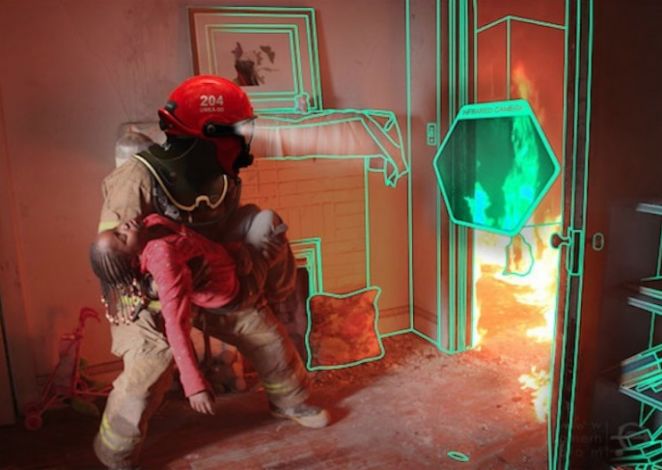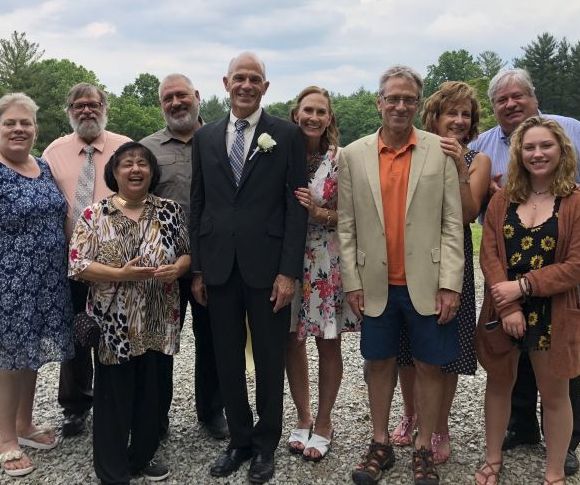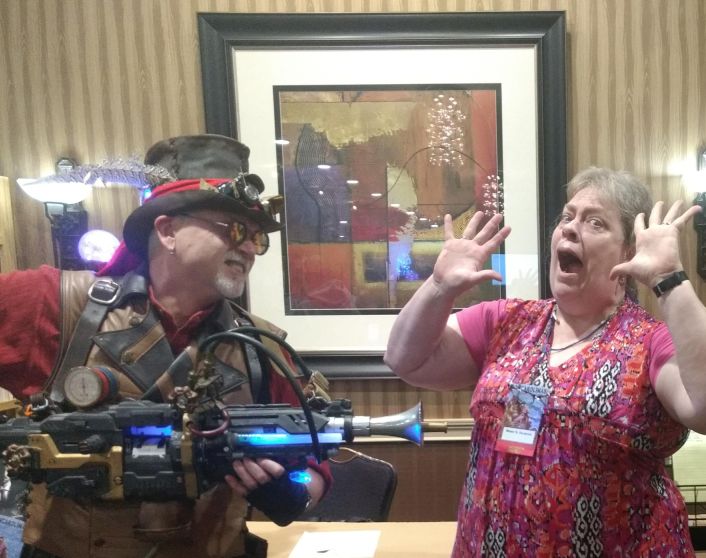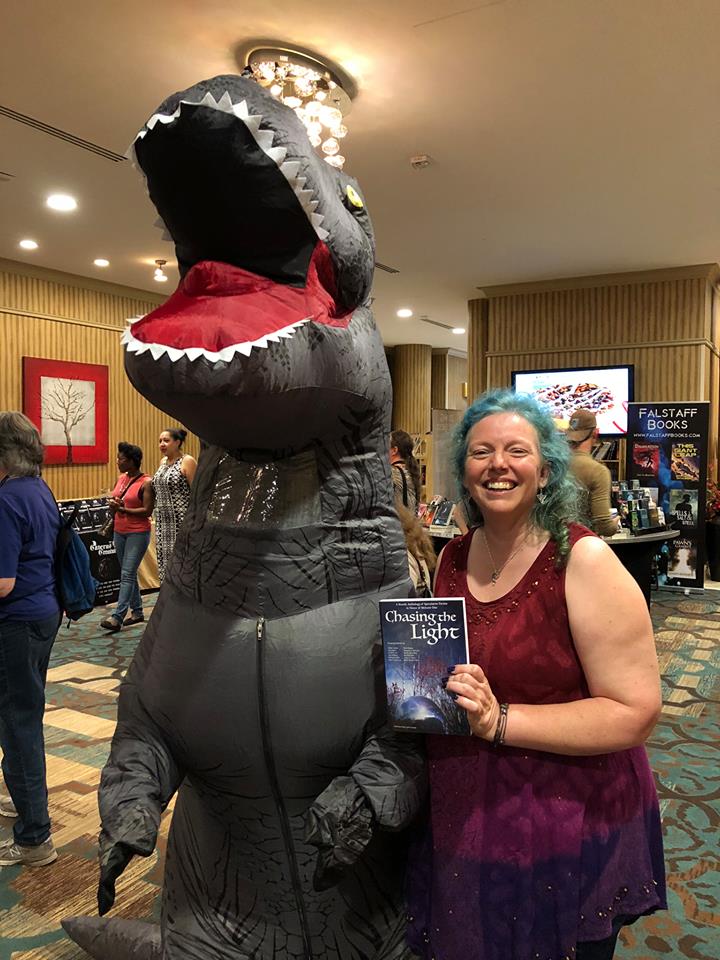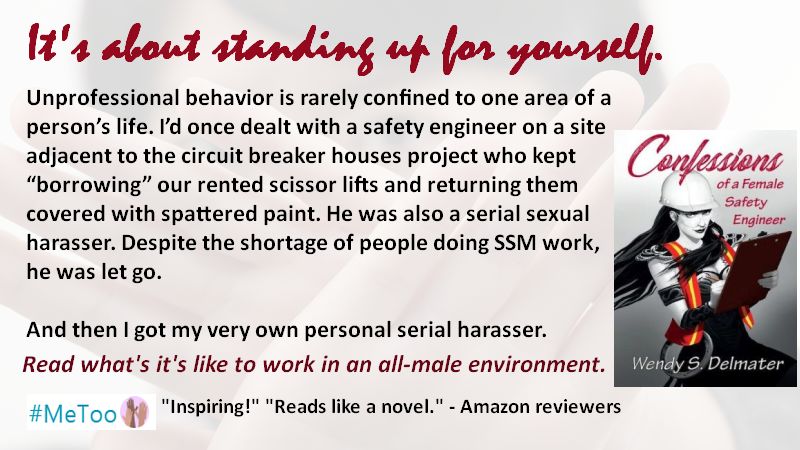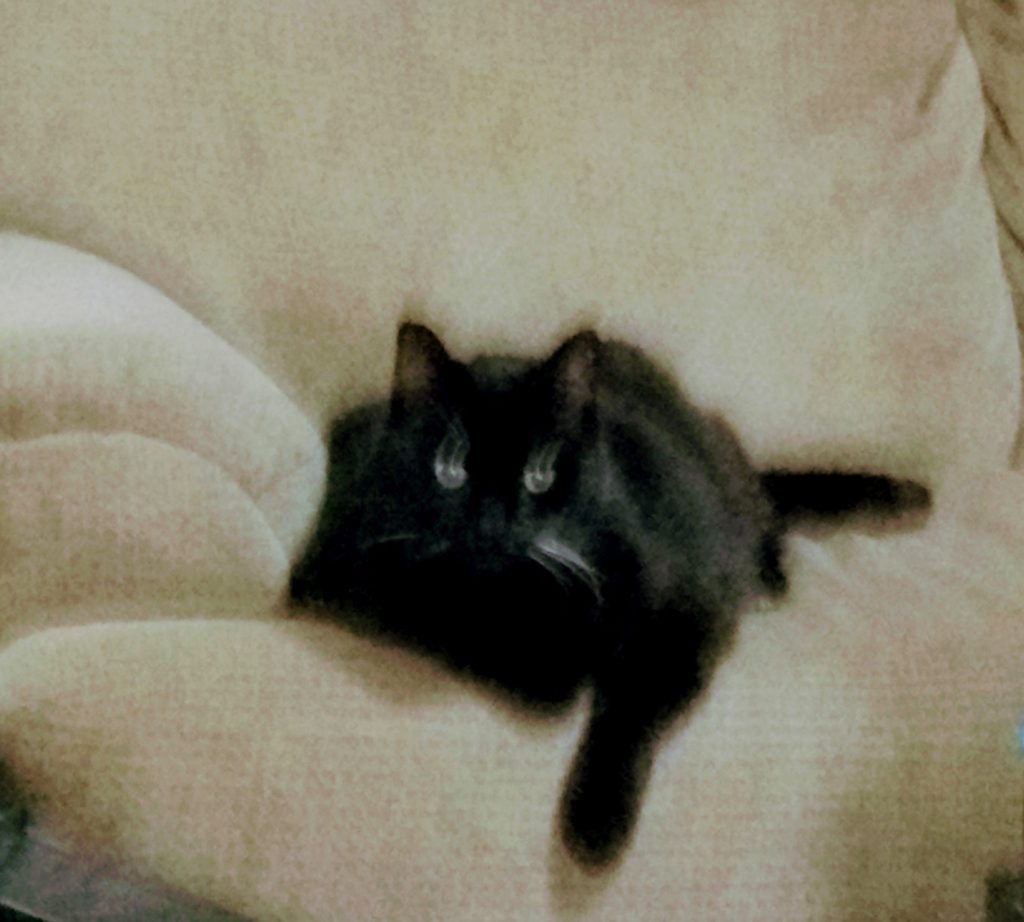ConCarolinas June 2– “Out, Out, Damned Slush” panel notes, moderated by Tony Daniel (Baen). Panelists Gray Rinehart (Baen), Wendy S. Delmater (Abyss & Apex), Emily Lavin Leverett (Falstaff Books)
I did not take notes, but this was the discussion to the best of my recollection. – WSD
TD. What’s it like to read slush?
GR: I used to do the paper novel manuscripts for Baen; they’d come in 80-pound boxes. It takes a great deal of time to go through as many submissions as they get! My main criterion was to cut the pile down to size. Note: in 7-8 years, I’ve only passed up three novels that got published. (One was Chuck Gannon’s FIRE WITH FIRE.)
WSD: It’s the same with electronic submissions: you look for reasons to reject things. These include not following the guidelines, not using standard manuscript formats, and pushy queries and nasty follow up correspondence from writers.
ELL: Editors talk to each other and if you send nasty, pushy, accusatory correspondence word gets around; such authors have a much harder time getting published.
TD: What’s your editor “Origins Story” – how did you get into this work?
GR: I started, years ago, reading a backlog of Baen paper manuscripts as a volunteer. As I said, 80-lb boxes showed up at my house very week. After doing that a few years I started on the electronic manuscripts. Now I have a staff.
ELL: I had friends who wanted me to look at their manuscripts. Some looked like too much work, and I just sent them back, but I was able to help others. They thought I was extremely helpful, and I eventually started doing the same thing for Falstaff Books.
WSD: A friend of mine was running Abyss & Apex, and she was not well. Because of her illness, she had trouble getting out the premiums people had been promised for their donations. Her staff thought it was more than she could handle, and they actually closed the magazine and released all the story without her knowledge and consent. I was furious with them–the magazine was everything to her at the time–and I offered to help read slush. I was doing 30, 40, maybe 50 subs a weekend and enjoying it, not knowing that she’d been lucky to get 10 subs a year read by the remaining volunteers. But it was like discovering i had a super power: I was good at ediitng, and I loved it. Within six months she realized she really WAS too ill to handle it, and offered me the managing editor slot.
TD: What’s your process?
GR: I usually know in three pages if I want to read further. If I do, I look at the synopsis next to see if it’s something I might be interested in, to see where it’s going. If I like it I farm it out to my crew and see if they like it too. Usually three or four of us agree when I pass a book up to Toni (Weisskopf.)
WSD: If I am reading raw slush I usually know in 3 paragraphs. I’ll read further if I think it can be fixed in a rewrite or if it’s well-written and interesting. But I don’t read much raw slush. At Abyss & Apex I have four fiction slush readers and two flash fiction slush readers. They flag things for consideration–we call that a Second Opinion–and I read it. One big thing I’ve learned is that “maybe usually means no,” but if I’m not sure, I discuss it with senior staff: Tonya Liburd and Tom Simon. Tom’s the best developmental editor I’ve ever met, a real surgeon. When I wonder if we can fix something in a rewrite or can’t put my finger on what’s missing, he zeroes in like a laser. Then I might send it out to a technical consultant on anything from science to anthropology. We just rejected a fantastic story because our physics consultant told us the physics in the story were impossible and were, in fact, the opposite of what was used as a major plot point.
TD: Horror stories! What’s the worst thing you ever got in your slush?
ELL: I got a submission for an anthology called THE BIG BAD, highlighting villains. There was a story where the main plot was a discussion of all the reasons this POV character was going to rape someone. To make it worse, he was talked out of it but not because rape was bad but because he was a “noble human being.” I still get ill thinking about it.
WSD: I think that would have to have been the “Disneyfied lesbian squid story.” I swear, all it needed was singing animals in an underwater dance number. (*audience laughter*)
GR: *throws up his hands* So many! But the worst were probably the manuscripts that included some sort of prop from the book as a gimmick. (Gray gave a list of such unwanted swag but I forget what they were, exactly. The conclusion was, with Tony Daniel nodding emphatically, “Just send the manuscript! No gimmicks!”)
TD: What have authors done to piss you off? Any horror stories?
WSD: Well, there was the guy who was doing a rewrite with me who just assumed I would take the first draft of the rewrite and became incommunicado during the holidays, for weeks. I tried to email him, call him, etc. No answer. He expected his story to be in our January 1 edition, but I had to hold it for more changes. When the story was not in the edition he expected it to be in, he hit the roof and was actually sent me several abusive emails. He had a contract before the rewrite, which I never did again, and thanks to him we now have a “kill fee” where I can drop a story if the author gets abusive.
He wrote another story and I was supposed to be all excited that he was sending me something. Hard pass.
ELL: I’ve gotten abusive notes when I rejected something. It does not endear you to the editors. They will not see your brilliance when you’re calling them names.
TD: Let’s talk about cover letters. Any thoughts?
GR: I hate cover letters that try to tell me what the story will be about; that’s what a synopsis is for. Also, don’t tell me your entire publishing history. Cover letters should be simple: Here’s my book, here’s its word count, here’s its title, thanks for reading. With contact information like a business letter.
WSD: Oh yeah, imagine if we wanted to buy it but had no way to contact you?
GR: You can mention that you’ve published something or done something that is related to the topic or theme of your book. If your book is about (I forget Gray’s analogy, it was way funnier, but let’s say) skydiving and you’re a skydiver, and/or have you have written a book about skydiving, say so in your cover letter.
ELL: But don’t tell us about your expertise in or book written about (another topic I forget, so let’s say) wallpapering if your book is about skydiving. We don’t need to know.
WSD: Like Sheila Williams at Asimov’s, I don’t even read the cover letters until after I’ve read the piece. I let the fiction stand as is. And since we are a market for new writers, if I have to teach them to write a decent cover letter and manuscript formatting, it’s all part of my not being able to afford pros, so I make them. But good cover letters are a relief. I recommend the Shunn example cover letter; you can find it linked at the Shunn Manuscript formatting page.
TD: Any other thoughts?
GR: Editors are insanely busy people. If you waste my time with unnecessary correspondence, overly-long cover letters, constant queries etc., I am not going to think kindly about you.
ELL: If I make a comment to try and help you, and it’s not a rewrite request, don’t bristle. It might not be right for the publication or imprint, or it might be too similar to a story we just bought. (Nods from GR, WSD & TD) Don’t take rejections personally.
WSD: Yes, and editors have lives. Treat us like humans not adversaries.


